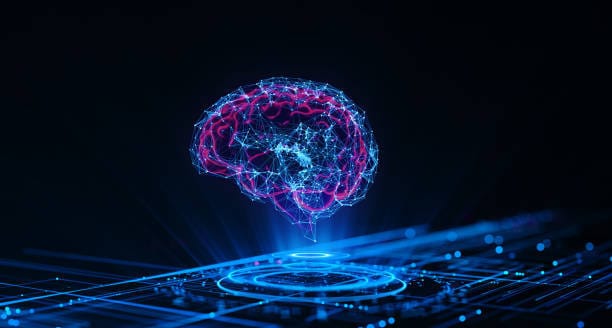- LuxAI Insights
- Posts
- AI vs. Machine Learning vs. Deep Learning – Know the Difference
AI vs. Machine Learning vs. Deep Learning – Know the Difference

As someone who’s been immersed in the world of artificial intelligence for a while, I often see people use the terms AI, machine learning, and deep learning interchangeably. I get it—the lines can seem blurry. But if you're diving into this space or just curious about the tech shaping our future, it’s essential to understand how these concepts differ. Let me break it down in a simple, no-jargon way.
Artificial Intelligence
Let’s start at the top. Artificial Intelligence, or AI, is the broadest concept of the three. It refers to any technique that enables computers to mimic human intelligence. That could mean solving problems, understanding language, recognizing patterns, or making decisions. If you’ve ever asked Siri a question or seen a chatbot respond intelligently on a website, you’ve interacted with AI.
AI is like the umbrella term that covers everything else. It’s not confined to one method or approach—it’s the idea that machines can perform tasks that, if a human were doing them, we’d call them “intelligent.”
Machine Learning
Now, machine learning (ML) is a subset of AI. This is where things get a bit more specific. Instead of hardcoding a computer to respond in a certain way, machine learning gives computers the ability to learn from data. It’s like teaching a child with examples rather than step-by-step instructions.
For instance, if I wanted a machine to recognize pictures of cats, I wouldn’t program it with rules like “look for whiskers” or “check for fur.” Instead, I’d feed it thousands of cat images and let it learn patterns on its own. Over time, it gets better at identifying what a cat looks like—even in new pictures it hasn’t seen before.
Deep Learning
Deep learning takes machine learning even further. It uses complex algorithms called neural networks, inspired by the structure of the human brain. What makes deep learning different is its ability to automatically extract features from raw data without much human guidance.
To stick with the cat example, traditional ML might need me to predefine features like “ears” or “tail.” But with deep learning, especially using convolutional neural networks (CNNs), the system figures out those features on its own—often with even higher accuracy.
Deep learning powers some of the most advanced AI systems we see today, like facial recognition, real-time language translation, and autonomous driving.
How They Fit Together
To sum it up with a simple metaphor I like to use: think of AI as the entire space exploration industry, machine learning as a rocket, and deep learning as a powerful engine inside the rocket. They’re all part of the same mission, but each plays a different role.
AI is the goal—intelligent machines. ML is a way to achieve that goal by letting machines learn from data. Deep learning is a more advanced, specialized version of ML, often producing even more impressive results.
Why It Matters
Understanding the difference between AI, ML, and deep learning isn’t just academic—it’s practical. When I read news about AI breakthroughs or hear someone pitching a new product, knowing these distinctions helps me make sense of what’s really going on under the hood. Is it a simple rules-based system pretending to be smart? Or is it truly learning and adapting?
This knowledge also helps manage expectations. Not all AI is created equal. Some systems might seem impressive on the surface but are really just following a flowchart. Others, like deep learning models, are genuinely pushing the boundaries of what machines can do.
At the end of the day, all three—AI, machine learning, and deep learning—are changing the world in ways we’re just beginning to understand. But the clearer we are about what each one means, the better we can engage with the technology and shape it in ways that truly benefit us. Now that you know the difference, you’ll be better equipped to navigate the AI landscape with confidence.
Join over 4 million Americans who start their day with 1440 – your daily digest for unbiased, fact-centric news. From politics to sports, we cover it all by analyzing over 100 sources. Our concise, 5-minute read lands in your inbox each morning at no cost. Experience news without the noise; let 1440 help you make up your own mind. Sign up now and invite your friends and family to be part of the informed.

